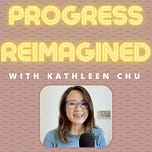As our current systems strain under mounting global challenges, from environmental crises to social inequality, many wonder: what comes next? In a recent conversation with Michel Bauwens, founder of the P2P Foundation, I gained fascinating insights into how we might be witnessing the emergence of what he calls the "fourth civilization" – a fundamental shift in how humanity organizes itself and creates value.
The End of an Era?
For 5,000 years, civilization has been built on geographic arrangements between rural and urban areas, with markets and states serving as primary coordination mechanisms. But this model is showing signs of strain. The nation-state struggles to regulate transnational finance, while our resource-intensive lifestyle is unsustainable. Research suggests that if everyone on Earth lived like the average U.S. resident, we would need approximately 5.1 Earths to sustain our resource consumption [1].
Yet in this chaos, Bauwens sees hope in what he calls "seed forms" – new ways of organizing emerging at society's edges. Two key patterns stand out:
1. Peer-to-Peer Networks: Unlike traditional hierarchical structures, peer-to-peer (P2P) networks facilitate direct collaboration among equals. This is evident in open-source communities like Linux, where contributors create free software driven by passion rather than necessity. As Bauwens notes, in a conventional model, workers "have to sell their labor," but Linux emphasizes "contribution, not c This approach has been highly successful—Linux now powers all of the world's top 500 supercomputers and serves as the foundation for the Android operating system, which operates on over 70% of smartphones globally.
2. Commons-Based Resources: These are shared resources managed by communities rather than markets or states. From community land trusts to open-source knowledge repositories, commons provide an alternative to private and state ownership.
The Rise of "Cosmolocal" Organization
Perhaps most intriguingly, Bauwens describes an emerging "cosmolocal" model that combines local resilience with global cooperation. Communities focus on local production while sharing knowledge and resources globally through digital networks. This could help address both environmental challenges (by reducing transportation needs) and social ones (by enabling communities to resist external pressures while maintaining connections to global support networks).
Bauwens identifies three major forms of external pressure that local communities face: hostile nation-states, transnational finance, and corporate power. He offers a stark example from agriculture: in many African countries, local farmers face pressure from large corporations like Monsanto that push communities to abandon traditional seed-sharing practices in favor of purchasing "terminator seeds" – seeds that don't reproduce, forcing farmers to buy new ones each year.
His proposed solution is to connect local efforts to global commons. When communities engaged in permaculture, shared transportation, or community land trusts connect translocally, they can share knowledge, develop cooperation protocols, and – crucially – tap into regenerative crypto capital. This creates a new form of counterbalance: local communities gain access to financial resources and knowledge networks that help them resist both state and corporate pressure, while maintaining their autonomy. As Bauwens notes, this approach creates "one cosmolocal entity that is able to mobilize force and money and labor into its own priorities."
Hope and the Path Forward
Importantly, this isn't just about technology. As Bauwens emphasizes, "Everything is techno-social." While blockchain and other technologies enable new forms of coordination, success depends on building appropriate social structures and cultural norms. We're seeing this evolution in Web3 communities, which are developing sophisticated governance mechanisms and ethical frameworks.
What makes this vision compelling is that it's already happening. From the $3 trillion crypto economy to the 35 million digital nomads worldwide, we see new forms of organization and value creation emerging. The recent gathering in Chiang Mai, where 12 different "pop-up villages" created a vibrant learning ecosystem, demonstrates how these new models can work in practice.
How do we engage with this transition? Bauwens suggests a dual approach:
- Locally: Focus on building resilience through access to organic food, renewable energy, and strong community connections
- Globally: Join knowledge communities that strengthen both individual and collective capabilities
While success isn't guaranteed, this approach offers what Bauwens calls "hope with evidence" – not abstract utopianism, but practical steps toward a better future.
Looking Ahead
As we face increasing global challenges, the emergence of these new organizational forms offers hope. They suggest possibilities for addressing our environmental crisis while creating more equitable and fulfilling ways of living. The transition won't be easy, but as Bauwens reminds us, like a caterpillar transforming into a butterfly, periods of chaos can lead to beautiful metamorphoses.
The question isn't whether change is coming – it's whether we can guide that change toward a more sustainable and just future. The seeds of that future are already here. Our task is to nurture them.
---
*What do you think about these emerging forms of organization? How do you see the balance between local resilience and global connection playing out in your community? Share your thoughts in the comments below.
---
Sources:
[1] Global Footprint Network, 2023. "How many Earths would we need if everyone lived like..." https://www.footprintnetwork.org/
[2] TOP500 Project. "Operating System Family Share" https://www.top500.org/statistics/details/osfam/1/
[3] StatCounter Global Stats - Operating System Market Share Worldwide. https://gs.statcounter.com/os-market-share/mobile/worldwide*












Share this post